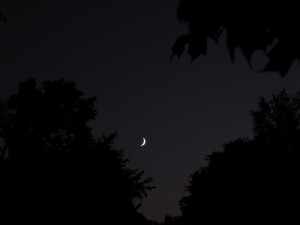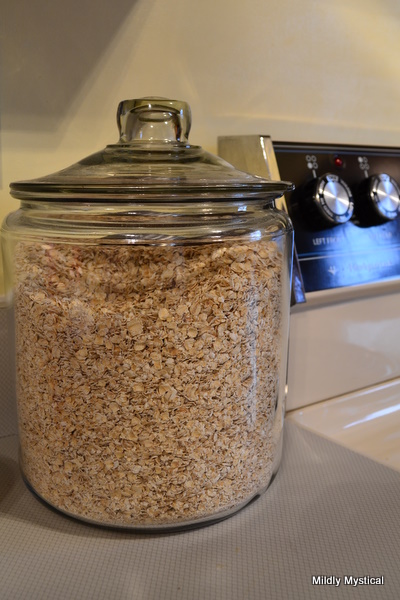Early morning is sacred time for me, when the day is still pregnant with possibility. Creatively speaking, during the minutes or hours before inevitable demands intrude, anything can happen. The veil of the dream world not yet grown opaque, sometimes I can see through the mist to a consciousness beneath the ordinary.

This receptive frame of mind that fosters a creative life nourishes the spiritual life as well. A day grown from the fertile soil of a quiet morning yields better fruit. For night owls, those rich hours may descend after everyone else is in bed, but I only hear distant hoots from that world.
Years ago a friend encouraged me to rise earlier as a way of cultivating a richer spiritual life. “The world belongs to those who wake early,” she told me. It sounded good, but having my daughter ready to catch the bus at 6:50 a.m. took all the early-morning stamina I had. Dealing calmly with the start of the day was all the practice I could muster, and it was enough.
As children grew more independent and our morning schedule changed, I had more options. But there is a lot of competition for that early morning time!
- Advice on getting fit says to make exercise part of my routine, ideally first thing in the morning. It energizes the day, and no matter what comes up, exercise is crossed off the list.
- Many spiritual teachers advocate using the first part of the day to pray. It may be our only uninterrupted time, and the practice helps the day go better.
- Writers often stress using early morning hours to work. The day will be less angst-ridden if we know our writing is done.
- And the cat is emphatic that the first task of the morning is filling her food dish. She is charming but increasingly insistent, and her agenda always comes first.
So what is the one thing, the main thing, the most important thing to do? Especially when everything is connected. The strength and health of my body supports everything I do. Writing flows into my spiritual life, and prayer helps me have something positive to offer in all my efforts.
I wish I had many “first hours” of the day. I don’t want to choose. But like it or not, this life requires making choices and setting priorities.
After trying different things, I have settled on a practice that involves pen and paper. It might be writing out a dream from the night before. It might be a journal entry, morning pages, a blog post, or a prayer. I think of my morning writing as a vessel that can contain whatever is needed. Regardless of how it is filled, it helps me listen and respond to the still, small voice heard only in the quiet.
How do you begin your day?



